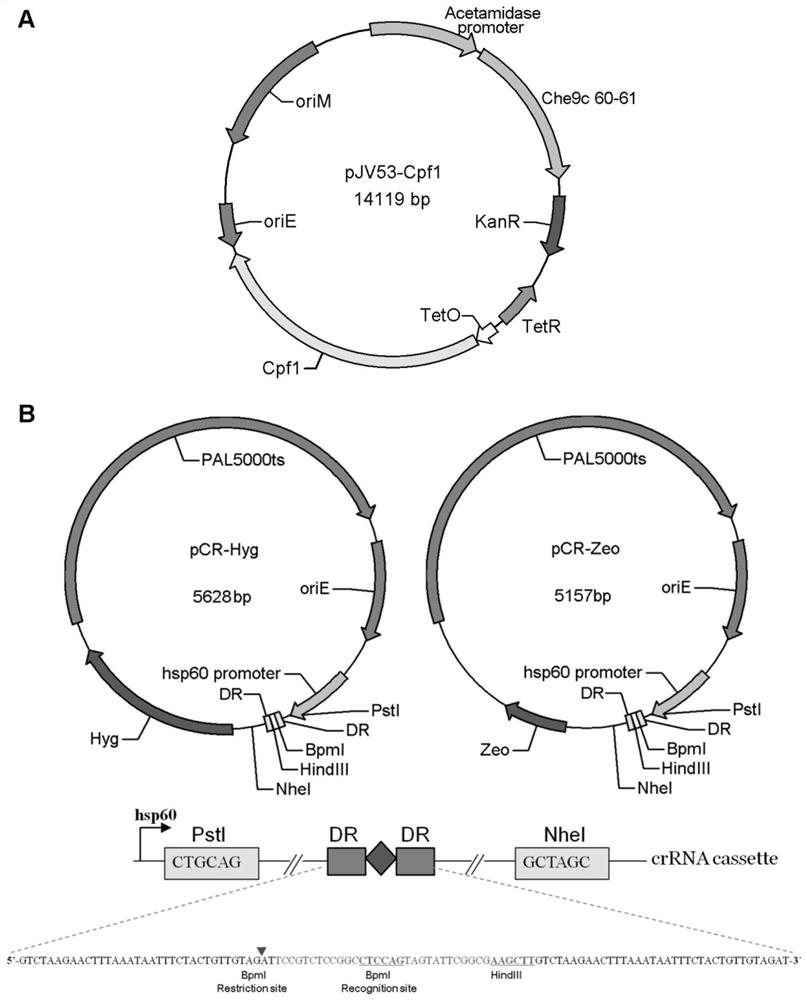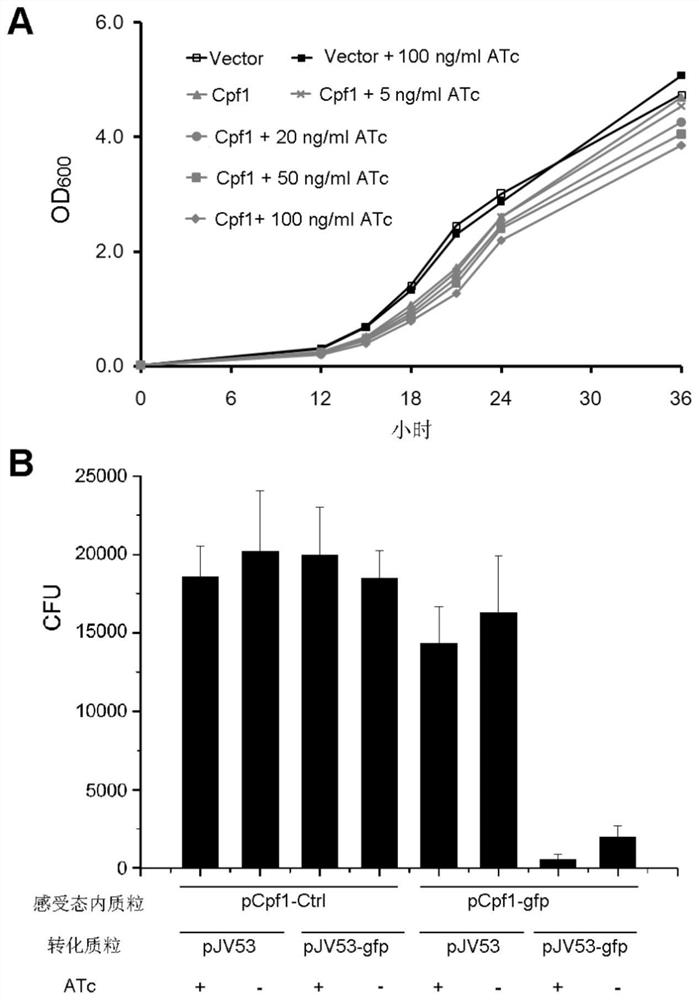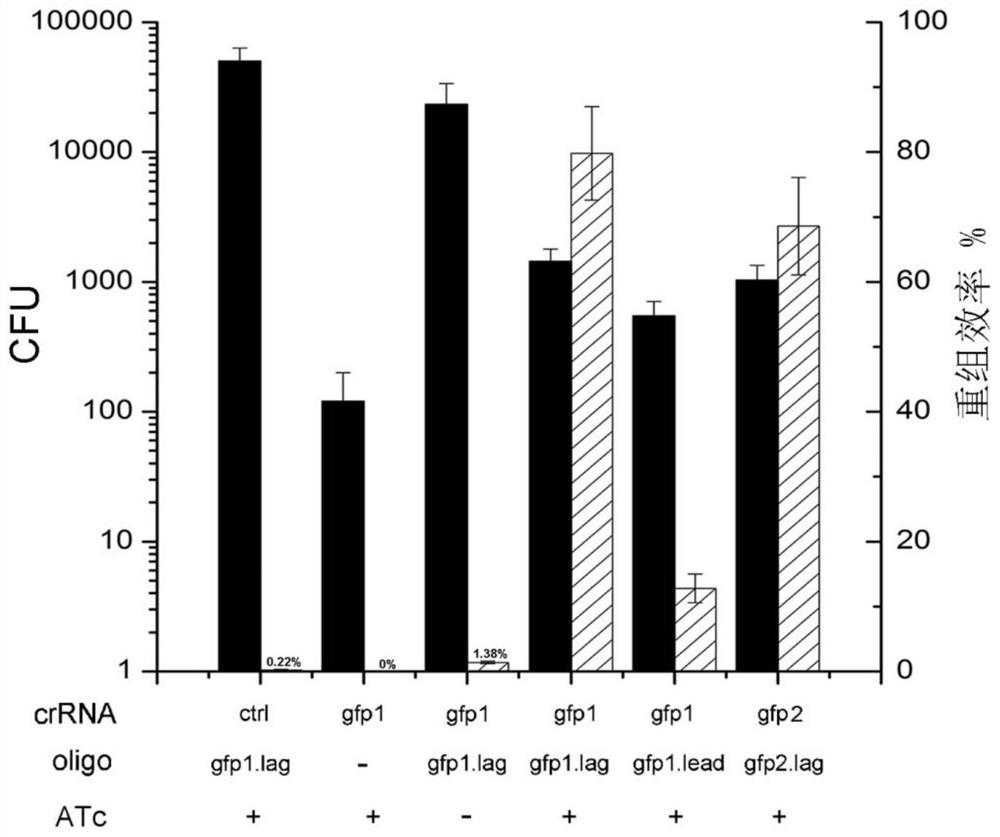A CRISPR/CPF1 gene editing system and its application in mycobacteria
A mycobacterium and genome editing technology, applied in the field of gene editing systems, can solve the problems of cumbersome construction process, Cas9 protein toxicity, and long time consumption, and achieve high recombination efficiency
- Summary
- Abstract
- Description
- Claims
- Application Information
AI Technical Summary
Problems solved by technology
Method used
Image
Examples
Embodiment Construction
[0031] The present invention is described in further detail by the following examples, but the scope of the present invention is not limited in any way.
[0032] First, the FnCpf1 gene sequence was optimized with reference to the characteristics of high GC and codon preference of mycobacteria (the optimized sequence is shown in SEQ ID No: 1 in the sequence listing), and it was cloned into a gene that can be used in Mycobacterium smegmatis On the replicated shuttle vector, FnCpf1 was induced to express under the regulation of TetO promoter. The plasmid was then transformed into Mycobacterium smegmatis mc 2 In 155, although FnCpf1 is a foreign protein, Cpf1 induced by high concentration of ATc did not cause the growth restriction of M. smegmatis (see figure 2 Middle A). Cpf1 was demonstrated to be applicable to M. smegmatis.
[0033] In order to further verify the activity of FnCpf1 in Mycobacterium smegmatis, that is, whether it has a cutting function, we verified it by pla...
PUM
 Login to View More
Login to View More Abstract
Description
Claims
Application Information
 Login to View More
Login to View More - R&D
- Intellectual Property
- Life Sciences
- Materials
- Tech Scout
- Unparalleled Data Quality
- Higher Quality Content
- 60% Fewer Hallucinations
Browse by: Latest US Patents, China's latest patents, Technical Efficacy Thesaurus, Application Domain, Technology Topic, Popular Technical Reports.
© 2025 PatSnap. All rights reserved.Legal|Privacy policy|Modern Slavery Act Transparency Statement|Sitemap|About US| Contact US: help@patsnap.com



